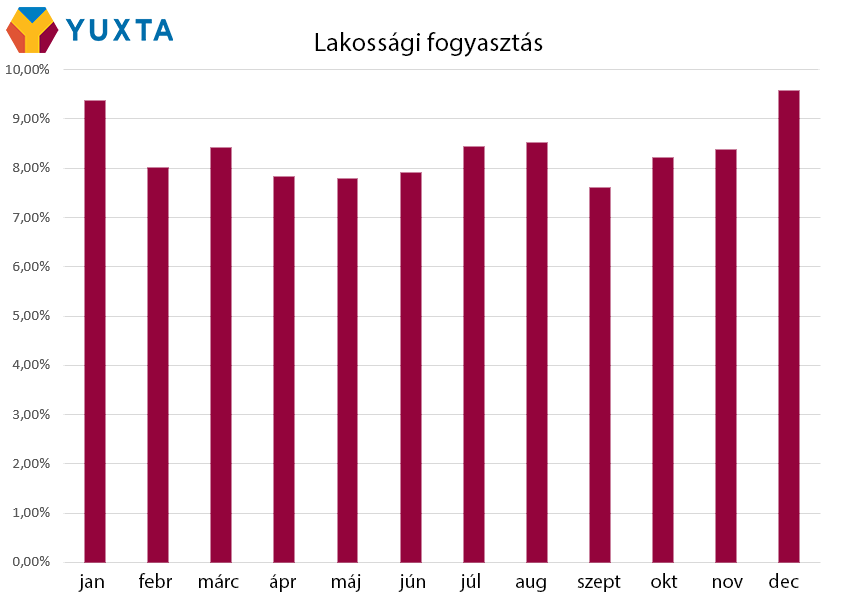From the legislation that changed at the end of last year, there is even an interpretation that after January 1, 2024, the balance settlement will not be annual, but monthly. Many interpreted this solution as the end of solar systems, as it worsened the return. However, the newly appointed energy minister, According to Csaba Lantos's latest statement the idea is still under consideration, i.e. the annual balance guaranteed for ten years may remain.
At the same time, compared to the annual balance settlement, the monthly settlement is less favorable only in certain cases. In general, it can be said that in the case of an average consumer and a well-sized solar system, the transition to monthly balance settlement does not cause a significant deterioration in the return, still it is worth installing a solar system. Why? Let's look at the specific reasons.
Monthly consumption
Monthly residential electricity consumption is almost uniform, with higher monthly consumption typically occurring in December and January, and July and August. In the other months, the monthly average of the annual consumption can be measured.

Monthly production
Systems installed by YUXTA Kft based on our measurements, the monthly production fell short of the annual average value in a maximum of 5 months, the systems produced above the annual average in the other 7 months.

If the production and consumption curves are aligned, it can be seen that the amount of energy accounted for differently in the case of a monthly balance and an annual balance accounts for only about 20% of the annual consumption. For an average consumer, even with the monthly balance settlement, 80% of the consumption is provided by the solar system.

So, in the case of 80% of the solar system's production, the monthly and annual balance yields the same return.
But what about the remaining 20%?
For the remaining 20%, the price difference between buying from the grid and feeding into the grid slightly worsens the return compared to the annual balance settlement, but it is important that the surplus produced in the summer, which is consumed in the winter, becomes cheaper, since in the current price regulation, HUF 5.1/kWh "revenue" produces" by the solar panel, which reduces the cost of electricity purchased in the winter (at the normal consumer price of HUF 36.1). It therefore follows that the monthly balance settlement in this 80% is the same as the annual balance and also helps to save energy costs in the case of the remaining 20%.
Of course, the above analysis does not take into account the possibility when someone switches to an electric means of transport, because he can achieve enormous savings on the sky-high charging prices (150-300 HUF/kWh) (even in the case of a monthly balance, since in the case of a monthly balance calculation, charging at night and daytime use will be billed).
In the current economic environment, financial arguments play a prominent role and, unfortunately, it is often not mentioned that the solar system not only helps to achieve financial savings, but the production and use of domestic renewable energy creates security of energy supply, protects our environment in the long term, reduces air pollution, reduces the amount of generated waste, thereby contributing to the creation of a more livable environment, which is our common goal and responsibility.
